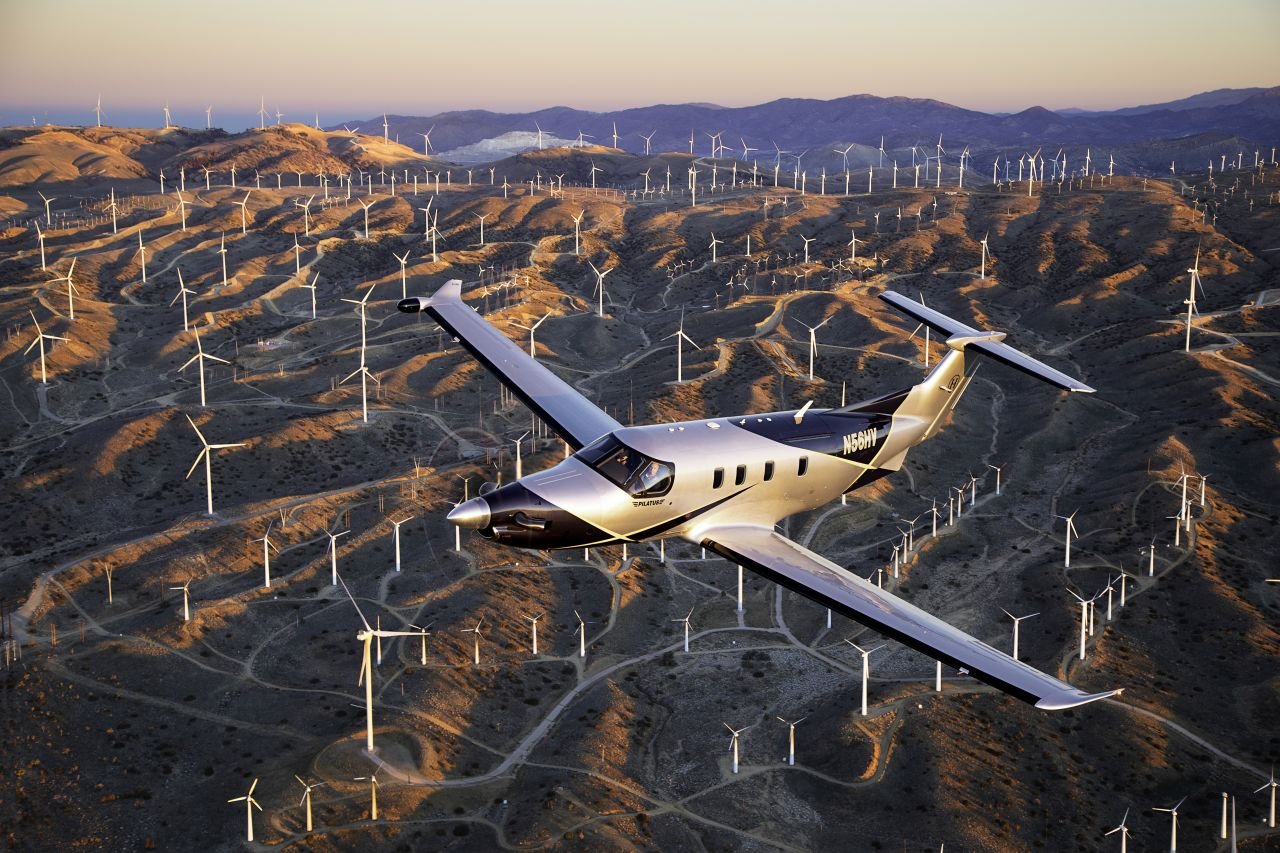Is Business Aviation Green?
Environmental sustainability is a critical issue across all sectors, including business aviation. Though business aviation constitutes a small fraction of the overall aviation industry, it is important to assess and minimize its environmental impact. From a Canadian business aviation perspective, supported by the Canadian Business Aviation Association (CBAA), we at AeroShares are dedicated to promoting sustainable practices in our operations. Utilizing the Pilatus PC-12 turboprop aircraft, we aim to set an example in reducing our environmental footprint.
The Environmental Impact of Business Aviation
Business aviation in Canada and globally comprises private jets and turboprops used for corporate travel, medical evacuations, and other specialized missions. Although this sector represents a minor portion of total aviation activity, its environmental impact cannot be overlooked. The CBAA highlights the importance of adopting sustainable practices to mitigate this impact.
The Pilatus PC-12, a single-engine turboprop aircraft, is an excellent example of how business aviation can be more environmentally friendly. This aircraft's high-efficiency gas turbine engine and advanced aerodynamics significantly reduce fuel consumption and emissions compared to larger, multi-engine jets.
Why the Pilatus PC-12 is a Greener Choice
The Pilatus PC-12 stands out in business aviation for its efficiency and environmental considerations:
1. Fuel Efficiency
The PC-12's single-engine design and advanced aerodynamics make it one of the most fuel-efficient aircraft in its class. Its ability to perform various missions with lower fuel consumption translates directly to reduced CO2 emissions.
2. Lower Emissions
The high-efficiency gas turbine engine in the PC-12 produces fewer emissions than traditional jet engines. The aircraft's design allows for optimal fuel burn, minimizing the release of pollutants such as CO2 and NOx.
3. Versatility and Utilization
The PC-12's versatility allows it to operate in diverse environments, including short runways and remote areas, often eliminating the need for additional ground transportation and thereby further reducing the overall carbon footprint.
Sustainable Practices at AeroShares
At AeroShares, sustainability is at the core of our operations. Here are some of the initiatives we undertake to ensure our business aviation practices are environmentally responsible:
1. Optimized Fleet Management
We maximize the utilization of our aircraft through shared ownership. This approach reduces the total number of flights and aircraft needed, leading to fewer emissions per owner compared to traditional private jet ownership.
2. Adherence to Best Practices
We follow industry best practices for fuel management, including optimizing flight routes, minimizing unnecessary weight, and employing advanced air traffic management systems to ensure efficient operations.
3. Carbon Offsetting
AeroShares offers carbon offset programs, allowing co-owners to offset their share of the aircraft's carbon footprint by investing in environmental projects such as reforestation and renewable energy.
The Future of Green Business Aviation
The aviation industry is constantly evolving with advancements in technology and sustainability initiatives. For business aviation, the focus is on continuing to reduce environmental impact through the adoption of more efficient aircraft, sustainable aviation fuels, and innovative technologies.
Sustainable Aviation Fuels (SAF)
The development and use of sustainable aviation fuels (SAF) are crucial for the future of green aviation. SAF can reduce lifecycle CO2 emissions by up to 80% compared to conventional jet fuel. As these fuels become more available, AeroShares is committed to incorporating them into our operations.
Electric and Hybrid-Electric Aircraft
Electric and hybrid-electric aircraft represent the future of environmentally friendly aviation. While these technologies are still in their early stages, they hold great promise for reducing emissions. AeroShares is closely monitoring these developments and exploring opportunities to integrate these innovations into our fleet.
Conclusion
Business aviation, though a small portion of the aviation industry, has a role to play in achieving environmental sustainability. At AeroShares, we are dedicated to minimizing our environmental impact through the use of efficient aircraft like the Pilatus PC-12 and by adopting sustainable practices.
By choosing AeroShares, you are not only investing in convenient and efficient air travel but also supporting a commitment to a greener future. For more information on our sustainability initiatives and how you can be part of this journey, visit AeroShares.

